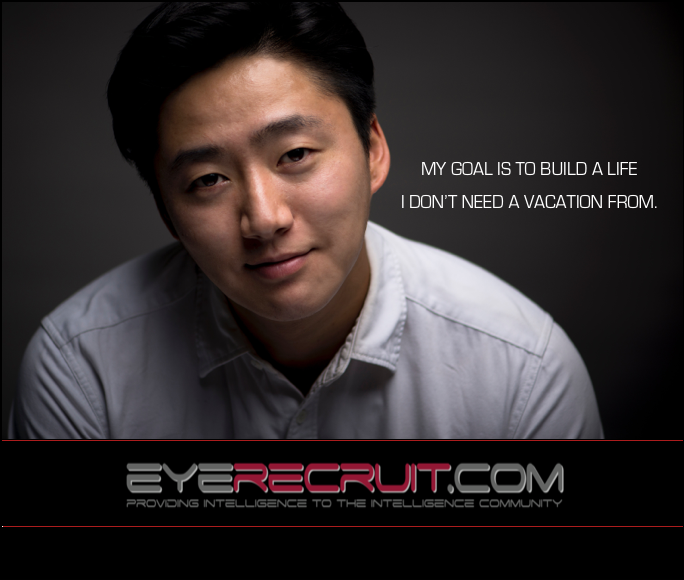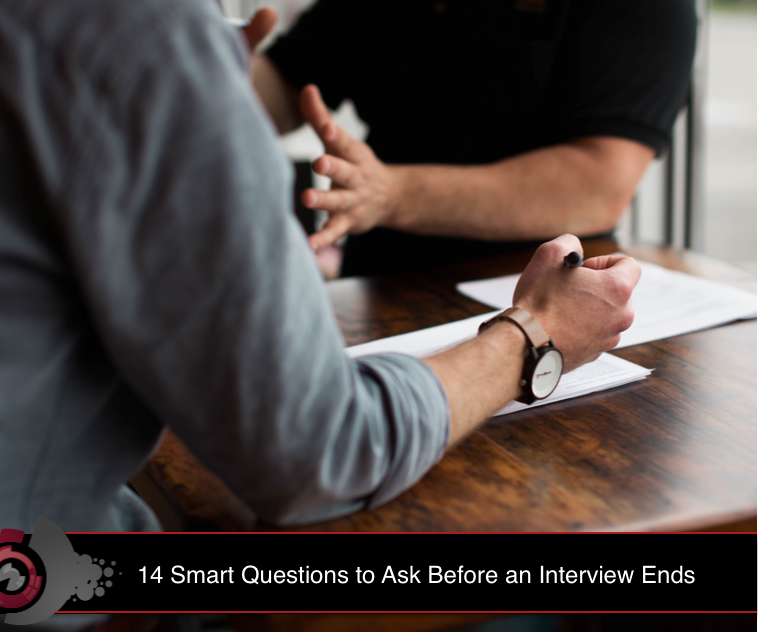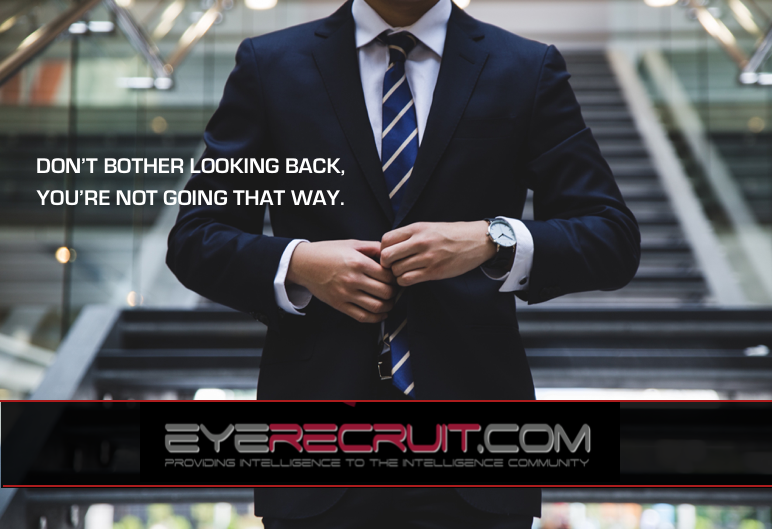“….Build a life that I don’t need a vacation from.” There it was again. The term “vacation from” kept going around and around in my head. Then I realized this phrase came up in passing during THREE conversations last week alone, but what was the takeaway during my customary “week in review?” In my profession, people are usually on their best behavior. They dress to impress, have focused engagement, ask challenging questions and care to listen to my responses to their inquiries.
The people I work with see me as “useful” in some way to their long-term success. Does that mean I am not seeing who they really are? Quite the contrary. I am seeing who they should be more often. The good part of my career choice is most people are happy to talk to me and can I feel that coming through the phone or during a Skype call. See they understand that my job is not that of a “traditional” Recruiter. My goal is to support people in the Investigative & Security profession make informed decisions about their career development and trajectory, using all the available tools – first impressions, résumés, LinkedIn profiles and even simple reminders to have certain questions prepared to interview the interviewer – anything that is needed to meet their career goals.
Why does this matter in context to finding an answer to our question on how to build a life you don’t need a vacation from? Simple, because I have done it. While there are difficult conversations and times where people are in desperate need and finding them an opportunity is providing difficult, the people I am calling usually pick up the phone when I call and when I need to leave a message, I don’t even have the thought in my head that I won’t get a call back in a reasonable timeframe. From that perspective, I have been successful building my life and my career. But it hasn’t always been that way.
The difference between good and great is attetnion to detail.
Because of my investigative training, when I hear things multiple times from seemingly unconnected sources, my mind picks up on it. Associations, phrases, places, people, and tie-ins fairly quickly make me curious. That’s why I was perplexed when I couldn’t quite put my finger on where this phrase from or why it popped in these conversations. I know I have heard it before, but why does it seem to be gaining traction now? Has it become a buzz word on social media, the news, or on some online content?
I am an avid reader, but sometimes I must admit, I don’t always remember all the great sayings, phrases, quotes, one-liners, zingers, advice, and words of wisdom from the business and thought leaders that one comes across in a lifetime, let alone from all of recorded history. This one, however, was sitting on the edge of my subconscious toying with me. So while I had a few minutes before a meeting, I decided to perform a meditation I was taught called Brain Bouncing.
Let’s review the concept. If you are having trouble with some detail, a fact, a place, a reference point or something more elaborate, the first thing to do is quiet the mind. Despite popular opinion, Brain Bouncing is not repeatedly bouncing you head off a hard surface in frustration as often depicted in satire. Brain Bouncing is a way to allow our over-stimulated monkey brain to focus attention specifically on the inputs you released. Think of it like a pinball machine and the thought you want to focus on is the steel ball. The goal of the steel ball, continuing with the analogy, is to allow the full attention of your experiences and sub-conscience mind to make the associations and for you to focus on simply listening.
This works better if everything else in your surroundings is quiet as well. So turn off the music, turn off your ringer, silence the notifications from your computer and if you are driving, don’t be an idiot…pull over and park. You can think while driving, but Brain Bouncing takes you much deeper. You might look weird if people walk by and you’re doing this in your car, but screw them, it’s not about them – it’s about you. You have nothing to prove to anyone, so stop worrying about the external. Focus on the goal.
After you start to quiet your mind, let it wander. Don’t try to control it. It will take you here and there with what you have to do later, what you didn’t do earlier but soon it will stop pinballing around from thought to thought when it runs low on stimulation. The trick is to not add stimulus and whatever you do, don’t add fuel to the fire as your brain attempts to provoke you into feeding your neurotransmitters. Now, when you have begun to capture the first signs of control of your thoughts, you will begin to pick up stimulation from wherever you are. The sounds outside, the engine if you left it running, the ticking of your watch, birds, the air conditioning unit in your office, the buzz of the fluorescent lights. When you notice that feeling, I find it most beneficial to give a little smirk, the mind is now under your control.
Now the only thing you need to do is offer your mind a question for it to play with. Break down the thoughts that you are looking for clarification on into smaller more digestible parts. For me, this instruction on “Brain Bouncing” has helped me jar memories and quite literally get the riddle solved. Start with the first question that comes to mind on the topic you were thinking about. “Is having a job you look forward to doing every day asking too much?” Let your inner voice continue to bounce it around and to follow any line of questioning that comes to mind. “What type of job would make the 40 or more hours fly by?” “How much money would be enough per hour for someone to do something they couldn’t stand doing anyway?” “Is it a job taken out of necessity or does the person feel like they are not good enough at doing something to ask for more pay?” “When did you feel this way?” “What was the last trip you took where you felt the need to take a vacation from work?” “Could someone that is always looking forward to the next trip lack the transferable skills to make a career transition so they can get into a field that better suits their personality or passions?” “How do you build a life that you don’t need a vacation from…” and I started to see the follically challenged best selling author in my head (no, not Tim Ferriss, the other one) – Seth Godin.
“Instead of wondering when your next vacation is, maybe you should set up a life you don’t need to escape.” Seth Godin
At the same time, I realized something else of importance, life is a combination of things that need to be done for an exchange of money and relationships and interactions with others. The feeling of escape can arise from any part the life that’s been built so far – the job choices made, the external negative or positive stimulation (noise) or from relationships – those people that come in contact with us on a daily basis that make our daily tasks unbearable. That’s the tie-in.
We are being bombarded with ignorant, arrogant, uneducated, greedy, rude, and self-aggrandizing blowhards. They are everywhere. Although it was right there in front of me the whole time, it took me a while to see how the slow escalation of our inability to say what we feel or feel that there would be negative repercussions, lead us to develop an entirely new method of communication-based on soft symbolism. Therefore a life in which one does not need to “take a vacation from” is an example of a new school of thought that is replacing previously used and outdated catchphrases and expressions such as “I am a hard worker,” “team player” or “track record.”
The new school way is much more subtle and it has been inspired by thought leaders who are saying, in most instances, what has been failed to be clearly expressed for years: it all matters. In one of Seth’s books, The Dip, he looks to teach readers “when to quit and when to stick.” How could I have missed the breadcrumbs? During many previous conversations with clients, they were not just telling me that they were dedicated, hard-working, honest, motivated employees, they were telling me that they can be more, desire to be more, and are reaching for more. They have, even after all the turmoil and chaos in their sector of our industry, they have decided to “stick” and continue to dedicate their time and efforts to making themselves and by default their industry better.
The Investigations, Security, Risk Managment & Loss Prevention industry is filled with amazing, hard-working, dedicated professionals, who invest their time, energy, and passion into making positive long-term impacts on a part of the world that is being negatively affected by those in the society that has a broken moral compass. Too often they are doing this at a rate of compensation that is below the value they bring. The tide has been slowly changing. While AI and robotics are on course to have a monumental impact on the security and investigative profession, the job seekers that are focused on constant improvement, and are dedicated to a self-directed career management objective will never become obsolete.
Finding a career that you don’t want a vacation from
Life requires different actions depending on your challenges. I hope that these techniques and concepts will help you “stick” in our industry. There is no doubt that you are needed. Give yourself permission to experiment with new things in order to find out what works for you. What works will vary depending on your circumstances. Never give up working on yourself.
Are you fulfilled in your current role? Do you look forward to going to work? Are you ever shocked that hours went by but it only felt like minutes? Do you find yourself always reading materials or listening to podcasts related to your profession? How about at work? Are you in a position that excites you with its ever-changing flow? Are you surrounded by a great team of like-minded professionals? Are you paid at or above for the duties you perform?
If you or someone you know within YOUR trusted network needs a more fulfilling, challenging, financially rewarding job – please contact me or send me your Résumé and I work to facilitate an introduction to an Employer that can help you reach your true potential.
You can also learn more about me, read more blog posts, or download tips to create a career and life you love in the investigative, Security, Risk Management or Loss Prevention industry.




